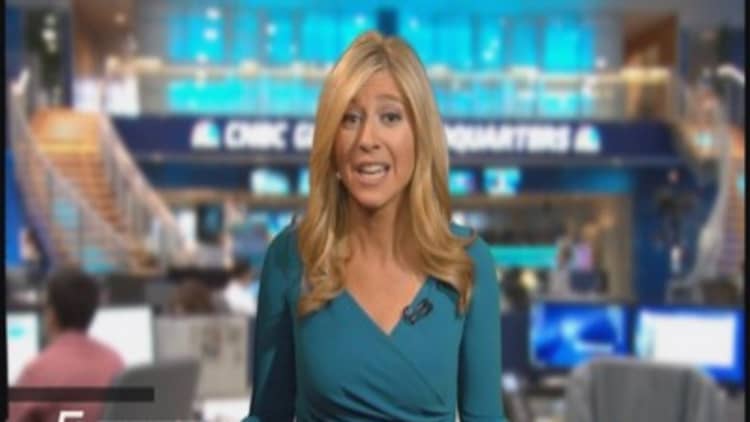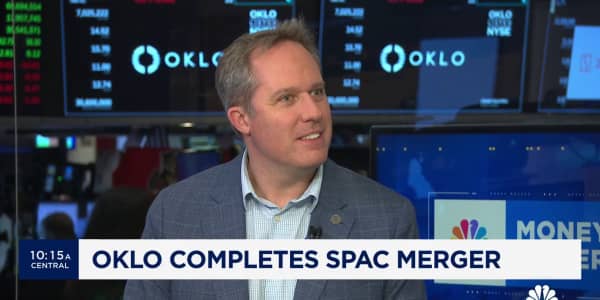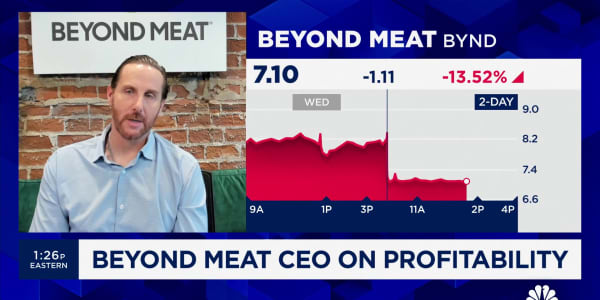
Things are about to get very risky for the euro.
But that doesn't necessarily mean it's a sell.
For the first time ever, the European Central Bank is set to announce full-scale quantitative easing to fight the growing threat of a deflationary spiral.
Already this week, euro zone consumer price data showed a 0.2 percent dip from this time last year, further adding to pressure on the ECB to plow ahead with bond purchases.
The goal of stimulus would be to boost money supply, lending and economic growth. It could be announced as soon as Jan. 22, the central bank's next policy meeting.
Three days later, the Greeks are expected to vote Syriza to power, a party whose leader has threatened to rip up the country's bailout agreement with Europe and even exit the euro altogether.
With all of those risk factors, it might seem crazy to buy the euro. So, why do some think it looks attractive?
The ECB factor

First of all, pros say ECB stimulus is already priced in.
The euro has weakened for four weeks straight and is now at a nine-year low versus the dollar.
Last week, the euro dropped close to the 1.1743 level at which it first started trading in January 1999.
It's been weakening ahead of the anticipated announcement of QE, as well as several reports, leaks and public discussions regarding how the central bank would actually buy sovereign debt in a diverse and fragmented bond market.
Read MoreECB plans QE according to paid-in capital: Source
All of this makes it difficult for the ECB to surprise markets.
"The ECB's stimulus plan will 'underwhelm' the markets ... especially since there is a growing opposition to the buying of any Greek debt in the program," said Matt Maley, an equity strategist at Miller Tabak, who is looking for a "tradeable reversal" for the euro lasting a few weeks or months.
The other risk? The ECB surprises the market with a delay, postponing the QE program until the March meeting, to see how the Greek election plays out and further sort out the legal and technical complications of implementing the program.
"I think March is more likely than January, both to wait for their own new forecast and to see us through the Greek election," said Erik Nielsen, chief global economist at UniCredit.
"Needless to say from a pure macros perspective it really doesn't matter, so long as the message is clear in January," Nielsen wrote Sunday in a research note.
Greek vote and the 'Grexit'

As for "Grexit," or Greece exit, risk, most top economists will say it's not the baseline view at this point, even if the Syriza party does win the general election.
Read MoreGreece in 'critical' situation as Syriza leads polls
"We do not expect a Syriza win to be followed by a Greek government default or Grexit in the foreseeable future," wrote Citigroup's Western Europe economics team led by Ebrahim Rahbari.
"This is mostly because there is a strong mutual incentive of creditors and the Greek government to keep Greece in the euro zone, even though Grexit cannot be ruled out. 2015 is not 2012 and contagion risks for the rest of the euro zone have fallen substantially," Rahbari said.
Lately, reports suggest German officials are prepared to be more lenient with Greece and willing to renegotiate its bailout terms with any new government.
Nielsen predicts that "the program will be adjusted a bit, and Europe will agree to lower the debt payments for the next couple of years ... and once one of the so-called radical forces has gained power and proven itself to being able to deal with Brussels and Frankfurt, Greece's place in Europe will suddenly look a lot safer."
Market positioning
The political uncertainty, coupled with bets for ECB easing has led to a near-record amount of speculative wagers on the euro's decline.
According to Commodity Futures Trading Commission weekly data, hedge funds and other large speculators have been building up long dollar and short euro positions for three weeks in a row. The total euro short position has grown to $23.9 billion, a level Maley and other market watchers said signals extreme bearish sentiment.
Read MoreECB could undermine QE if it does this
"Sentiment in the dollar and the euro is reaching ridiculous extremes ... therefore these currencies are as ripe as you ever see for 'tradeable reversals' ... ones that last several weeks or months," Maley wrote last Friday.
The dollar's place in the equation
A euro rebound may not just be driven by European factors; U.S. data points, influencing the dollar side of the trade, may also point to a near-term reversal in its strengthening trend.
Friday's payrolls report showed 252,000 jobs were created in December, and the unemployment rate fell further to 5.6 percent, a new post-financial crisis low. The report reaffirmed an improving labor market and capped off the best year for U.S. job creation since the late 1990s.
However, many strategists, economists and traders weren't impressed, because wages declined for the month by 5 cents an hour, the biggest monthly decrease since 2006, offsetting nearly all of November's wage increase. The Federal Reserve has made it clear it is focused on wages as a sign of slack in the markets and a justification for ultra-easy policy of zero interest rates.
In fact, during an interview immediately after the report, Chicago Fed President Charles Evans, a voting member of the Federal Open Market Committee this year, told CNBC, "If we are going to get inflation up to our 2 percent objective ... we are going to have to see wages increase more." Evans said he felt the Fed should wait until 2016 to raise interest rates.
Read MoreThe Fed wasn't very impressed with jobs numbers
The longer the central bank holds off on raising interest rates, the more bearish it is for the dollar, as the currency had been strengthening on signs the Fed would be forced to raise interest rates on the back of a better economy and labor market.
"The market's confidence that the Fed's liftoff will take place near midyear has been shaken," wrote Brown Brothers Harriman's chief currency strategist, Marc Chandler, after Friday's jobs report.
Furthermore, this week, "softer retail sales and inflation gauges will likely favor the doves and weigh on the dollar," Chandler said.
Add it all up, and the stage could be set for a euro-dollar rebound.
To be sure, forecasters say this is a temporary trade. In the more medium and longer term, a stronger dollar is likely to re-emerge, with the European economy in significantly worse shape than that of the U.S.
But for now, that trade appears a bit overdone. And those key event risks—including an existential threat to the euro itself—have the potential to trigger some euro buying in the near term.






